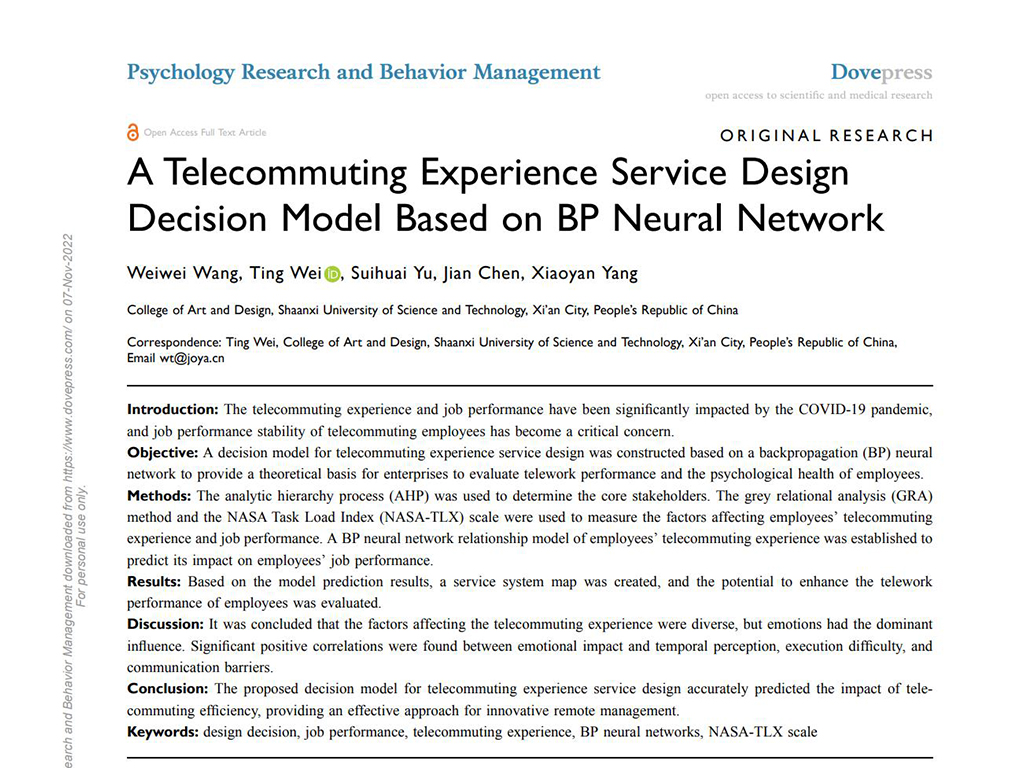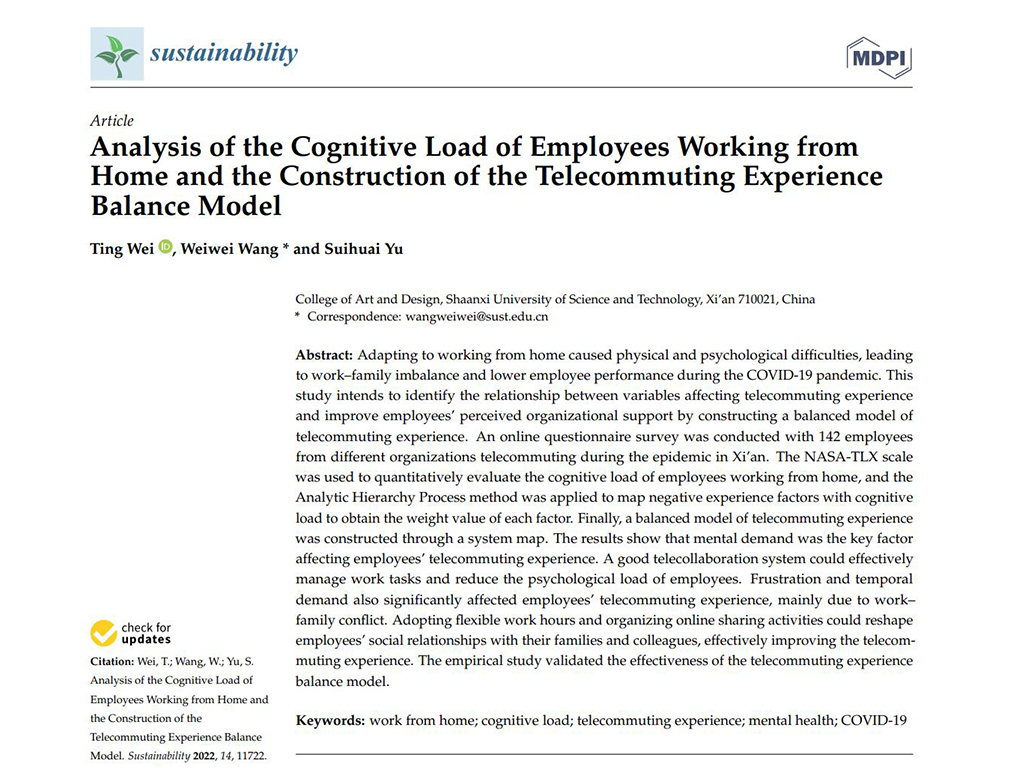近日,我校设计与艺术学院(丝路文化与传播学院)王伟伟教授团队在人机交互设计、情感体验评价学术方向取得重要进展。在国际期刊Psychology Research and Behavior Management(SSCI-二区,影响因子3.974)及Sustainability(SSCI-二区,影响因子3.889)上各发表高水平论文1篇。


论文工作均属于认知心理学与情感体验方向,系统研究了远程办公体验对用户认知负荷的影响,并借助BP神经网络以及NASA-TLX等方法建立用户情感体验评估的新方法,可应用于人机交互及认知心理学领域。
COVID-19疫情使得办公模式和员工情感体验受到极大影响,工作绩效的稳定性成为远程办公的重要问题。以上论文研究以疫情下的远程办公情感体验为背景,以利益相关者为切入点,深入分析单个利益相关者与整体利益相关者的交互关系如何互相影响,可视化远程办公工作流程。结合灰色关联分析方法及NASA-TXL量表对核心利益相关者的用户体验要素进行相关性排序,筛选关键变量指标。结合BP神经网络构建员工远程工作用户体验与工作绩效的关系模型,通过系统地图的形式将体验痛点转化为机会点,以期能拓展和补充效率管理领域的研究,为企业解决远程工作绩效管理问题提供借鉴和指导。
两篇论文均以安博体育平台中国登陆入口为第一完成单位,主要工作由王伟伟教授、余隋怀教授、王毅副教授、杨晓燕副教授、陈健老师和博士生魏婷共同完成。
据悉,近5年,该团队已在设计学科学相关领域及交叉领域国际期刊发表多篇高水平论文。
文章列表:
[1] Weiwei Wang, Ting Wei, Suihuai Yu, Xiaoyan Yang. A Telecommuting Experience Service Design Decision Model Based on BP Neural Network. Psychology Research and Behavior Management. 2022(15): 3147—3166.(影响因子3.974)
https://doi.org/10.2147/PRBM.S386089
[2] Wei T, Wang W*, Yu S. Analysis of the Cognitive Load of Employees Working from Home and the Construction of the Telecommuting Experience Balance Model. Sustainability. 2022; 14(18):11722.(影响因子3.889)
https://doi.org/10.3390/su141811722
[3] Yi Wang1,*, Qinxin Zhao1, Jian Chen1, WeiweiWang1,*, Suihuai Yu1,2, Cunliang Li3and Dongyi Jia1.Perceptual Quantitative Decision Making and Evaluation ofProduct Stylable Topology Design. Processes.2022, 10, 1819.(影响因子3.352)
https://doi.org/10.3390/pr10091819
[4] Yi Wang1,*, Qinxin Zhao1, Jian Chen1, WeiweiWang1,*, Suihuai Yu1,2and Xiao yan Yang1.Color Design Decisions for Ceramic Products Based onQuantification of Perceptual Characteristics. Sensors,2022, 22, 5415.(影响因子3.874)
https://doi.org/10.3390/s22145415
[5]Xiaoyan Yang1,Le Fan1, Weiwei Wang1, and Xiaojie Yang2. Application of Emotional Factors of Ink Symbols Evaluated by Network Model in Modern Visual Image Design.Wireless Communications and Mobile Computing. 2022, 1-9.(影响因子2.146)
https://doi.org/10.1155/2022/4731463
[6] Wang W, Wei T*, Yu S, Chen J, Guo B, Hu B. Analysis of priority capture method for dynamic requirements of intelligent products based on user scenarios. Advances in Mechanical Engineering. 2021;13(6).(影响因子1.566)
https://doi.org/10.1177/16878140211028453
(核稿:刘和林 编辑:刘倩)
